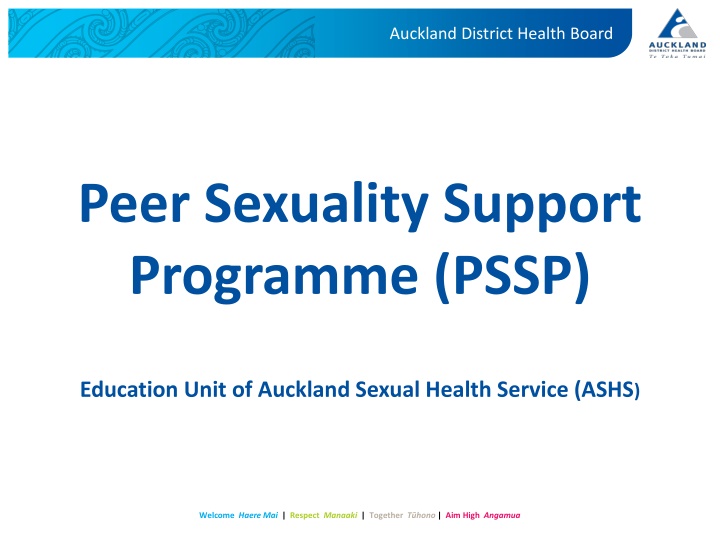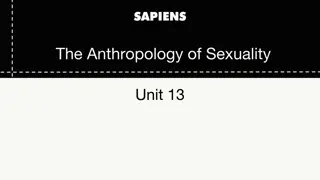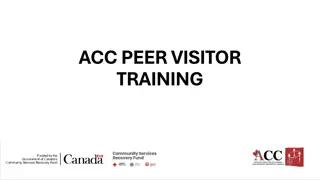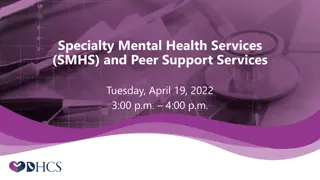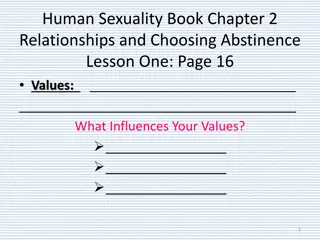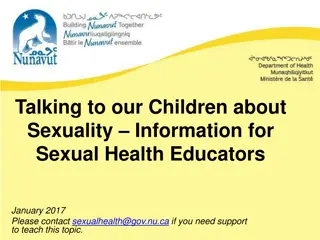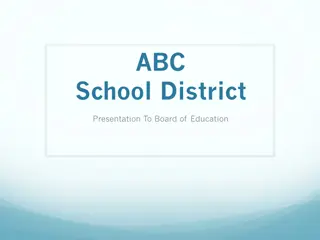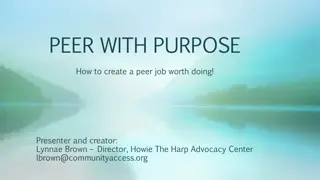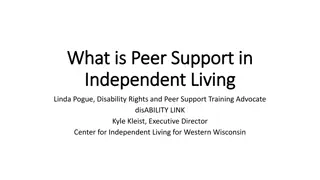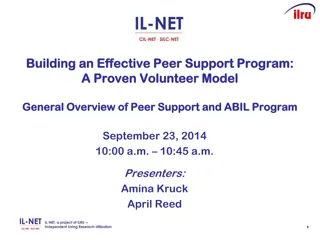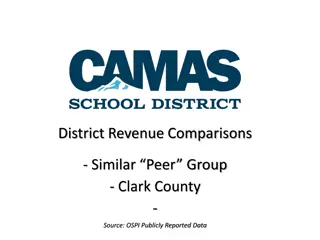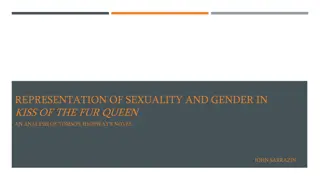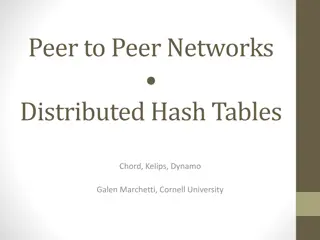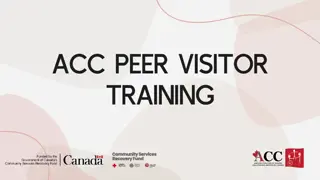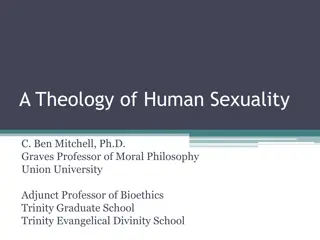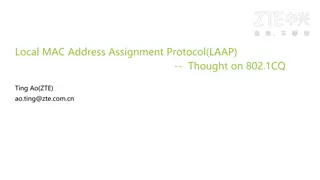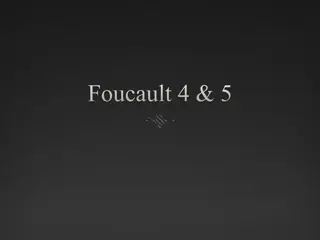Auckland District Health Board Peer Sexuality Support Programme (PSSP) Overview
Learn about the Auckland District Health Board's Peer Sexuality Support Programme (PSSP) that has been running for 24 years, training young people in sexual health education. The program is established in 24 secondary schools and aims to promote sexual health and well-being in communities. PSSP students design health promotion activities, raise awareness, and work with stakeholders for culture change.
Download Presentation

Please find below an Image/Link to download the presentation.
The content on the website is provided AS IS for your information and personal use only. It may not be sold, licensed, or shared on other websites without obtaining consent from the author.If you encounter any issues during the download, it is possible that the publisher has removed the file from their server.
You are allowed to download the files provided on this website for personal or commercial use, subject to the condition that they are used lawfully. All files are the property of their respective owners.
The content on the website is provided AS IS for your information and personal use only. It may not be sold, licensed, or shared on other websites without obtaining consent from the author.
E N D
Presentation Transcript
Auckland District Health Board Peer Sexuality Support Programme (PSSP) Education Unit of Auckland Sexual Health Service (ASHS) Welcome Haere Mai | Respect Manaaki | Together T hono | Aim High Angamua
What is wrong with this image? Welcome Haere Mai | Respect Manaaki | Together T hono | Aim High Angamua Auckland District Health Board
The PSSP Programme Has been running for 24 years & trains around 120 young people each year The Education Unit at Auckland Sexual Health Service are responsible for delivering PSSP PSSP is established in 24 secondary schools across the wider Auckland region It is jointly funded by the Ministry of Health & 3 regional District Health Boards To date PSSP has trained over 2250 learners to help support and educate their peers and communities around sexual health and well being. Welcome Haere Mai | Respect Manaaki | Together T hono | Aim High Angamua Auckland District Health Board
What is PSSP about? Welcome Haere Mai | Respect Manaaki | Together T hono | Aim High Angamua Auckland District Health Board
Welcome Haere Mai | Respect Manaaki | Together Thono | Aim High Angamua Auckland District Health Board
After PSSP Hui What do PSSP students do? Design and implement health promotion activities & initiatives that are community & setting specific Support & refer contacts to safe and appropriate service providers and community resources Work with key stakeholders to raise awareness of the need for culture change and how this could be tackled in their communities and settings Welcome Haere Mai | Respect Manaaki | Together T hono | Aim High Angamua Auckland District Health Board
Auckland District Health Board Current total of student recorded PSSP Contacts 2018 4228 Welcome Haere Mai | Respect Manaaki | Together T hono | Aim High Angamua
What Kind of Contacts are PSSP Leaders Having? What do you think will be the key differences between the solo and group contacts? Take a few moments to talk to the person next to you Individual Group Welcome Haere Mai | Respect Manaaki | Together T hono | Aim High Angamua Auckland District Health Board
Age of Contacts % of total recorded contact Age of Contact Number of Contacts 56.4% of contacts are senior school aged students? Under 13 27 0.8 13 81 2.4 Why is this important? 14 114 3.4 15 522 15.7 Unless they have selected health as a subject they will no longer be receiving any sexuality based education 16 955 28.7 17 785 23.6 18 137 4.1 18+ 307 11.1 338 10.1 Don t Know Welcome Haere Mai | Respect Manaaki | Together T hono | Aim High Angamua Auckland District Health Board
Circles of influence 43% whanau reported an increase in their young persons communication within the whanau 29% whanau reported an increase in the ability of the wider whanau to talk about sexual health & well being Welcome Haere Mai | Respect Manaaki | Together T hono | Aim High Angamua Auckland District Health Board
Measure of success Volumes are one measure of success. However, having young people continue to reengage with the PSSP leaders is the significant marker Welcome Haere Mai | Respect Manaaki | Together T hono | Aim High Angamua Auckland District Health Board
Solo contacts What gets discussed Topic Actual Nu / % 1522 / 35.2% Relationships 735 / 17% Sex 680 / 16% Mental Health 674 / 15.6% PSSP - Your service/What we do 471 / 10.9% Sexual orientation 224 / 10.1% Consent 345 / 8% Condoms 332 / 7.7% Gender Welcome Haere Mai | Respect Manaaki | Together T hono | Aim High Angamua Auckland District Health Board
Group Contacts What gets discussed Topic Actual Nu / % 372 / 38.5% Relationships Sex PSSP Our service/ What we do Sexual orientation Gender Consent Condoms Mental Health 335 / 34.6% 332 / 34.3% 254 / 26.3% 239 / 24.7% 224 / 23.2% 198 / 20.5% 160 / 16.5% Welcome Haere Mai | Respect Manaaki | Together T hono | Aim High Angamua Auckland District Health Board
Summary Until learning institutions are fully supported & equipped to deliver comprehensive sexuality education at all levels we must continue provide other mechanisms for youth to access factual & safe resources around sexuality. The peer to peer model works & as we see with PSSP engagement within the topic goes much further than just peers. How can you start to introduce sexual health & well being based conversations with youth? Is relationships you door into this topic with youth? Welcome Haere Mai | Respect Manaaki | Together T hono | Aim High Angamua Auckland District Health Board
